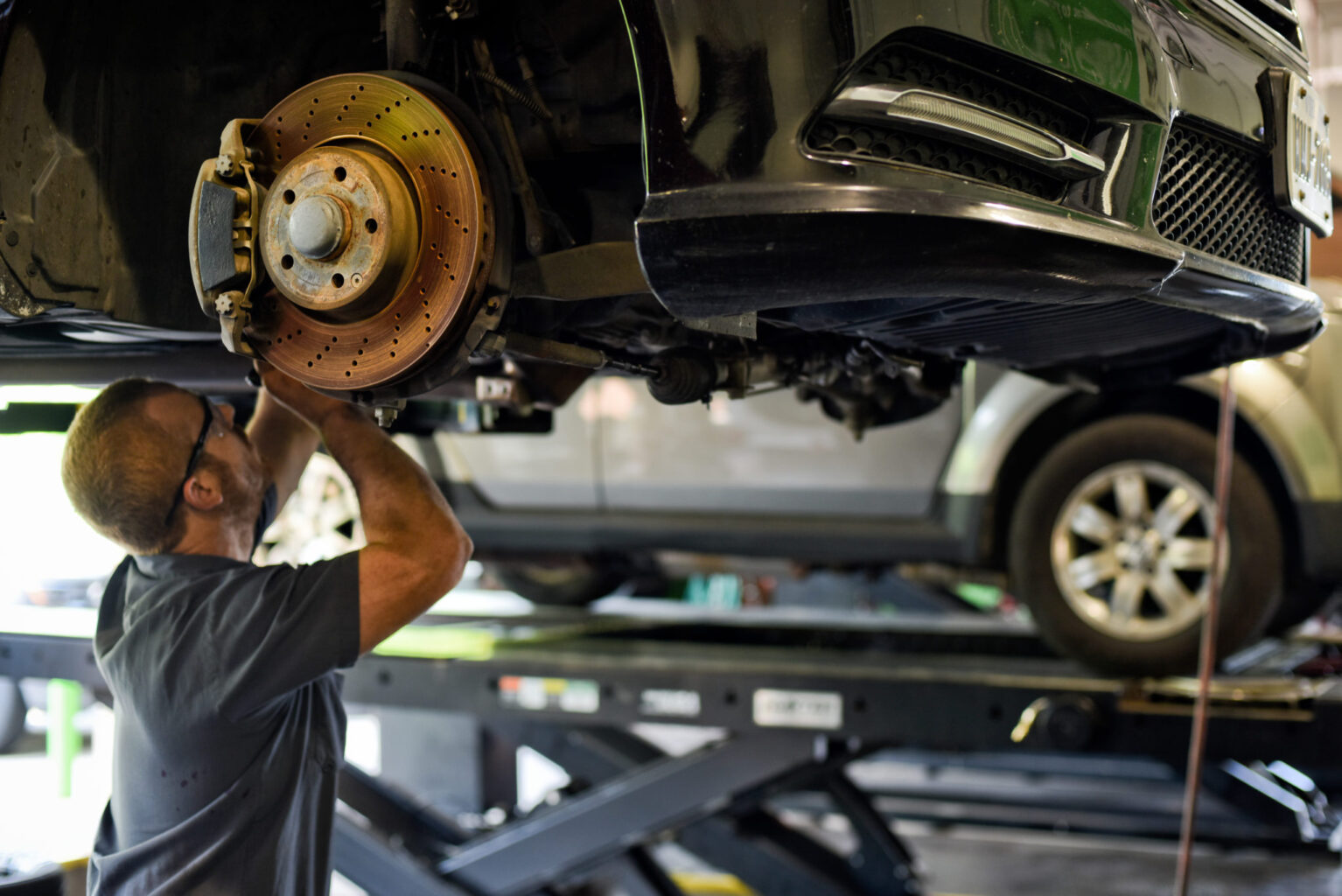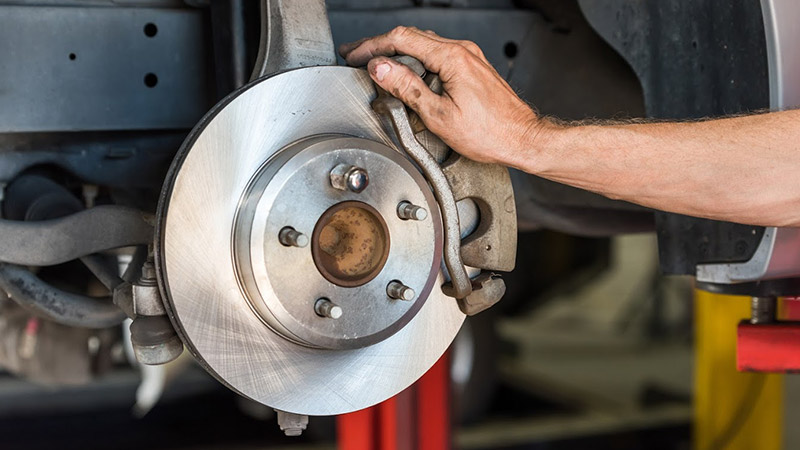Do You Need to Replace Rotors When Replacing Brake Pads?
It can be challenging to decide what kind of brake service you need for your car. Are you required to change the brake pads and rotors? What is the difference between resurfacing your rotors and replacing them? Are both the axles to be replaced at once? Why not just go a little longer before you get the brakes replaced?
Safety is the most important thing. You put yourself and others at serious risk if you don’t slow down or stop when you need to. It would help if you did not put off brake system replacements and repairs.
Table of Contents
What Are The Best Times To Get New Brakes?
It is simple to calculate how often you visit your local service center for certain car maintenance items like tire rotations and oil changes. Brake repair is different. There is no set service frequency.
According to industry experts, you should replace your brakes every 20,000-60,000. This is a huge gap! How can you tell when your brakes need replacing?
Squealing sounds and a vibrating wheel are two of the most obvious signs your vehicle needs to be bowed. It would help if you also looked for grinding sounds, a spongy pedal, and longer stopping distances.
How Do I Know When I Need New Brakes?
When you are confident that your brakes require attention, it is time to have a brake inspection to determine which parts of the brakes may need to be replaced.
Types of Brake Service
There are three main options for replacing brakes in most brake systems. We will show you the differences and explain why you choose one of the three.
1. Brake Pad Replacement
Customers often find a very cheap brake service when looking at pricing. This may seem like a good deal, but be careful. This could indicate that the auto shop performs what the automotive industry calls “pad slaps”. A pad slap does not replace your brakes and is certainly not a long-term solution.
This brake job involves replacing old brake pads with new ones. You also reuse brake hardware and brake discs. This is the bare minimum of brake service that’s available. It’s not something that we recommend or do.
Your vehicle will stop when brake pads and rotors are combined. The rotors will develop a “glaze,” a hardened surface over time. This can also lead to unique wear patterns. You may find that the pads you purchase are not shaped for the old rotors. This will cause brake noises and vibrations as well as premature wear.
NRS Brakes do not recommend that you replace your brake pads. We want you to be able to return safely on the roads. Putting a band-aid on your brakes won’t help.

2. Brake Pad Resurfacing & Replacement
A middle-of-the-road option for brake replacement is replacing the brake pads and replacing the brake rotors.
Resurfacing, also known as “turning” or “machining”, refers to removing a thin layer of material from the front and back faces of your rotors. You will have a smooth, flat surface to apply the brake pads.
Resurfacing eliminates any problems causing grooves, pits, or hotspots. Resurfacing allows new brake pads to wear evenly optimally.
Resurfacing reduces the thickness of the rotating parts. The thinner the rotor, the quicker it heats up or wears down. Most rotors can only be resurfaced once before they need to be replaced.
Resurfacing brake pads when installing new brake pads is a reasonable price and a good compromise, even if you don’t want to spend more on new rotors.
3. Brake Pad Replacement and Rotor Replacement
Complete brake services include the replacement of brake pads and brake rotors. This will give you more stopping power and fade resistance. Brake rotors are like brake pads. They wear over time. To be safe, brake rotors must be at least a certain thickness. You should replace brake rotors immediately if they are less than the recommended thickness.
Certain vehicles require new pads or rotors as the rotors can’t be resurfaced. This is the case for 99% of German cars. Because their rotors have a soft metal material, they wear down faster than the pads. This is the threshold at which the rotor must be replaced.
Resurfacing your brake rotors may be an option if you have a tight budget. However, it is possible to resurface the brake rotors if they are not below the recommended minimum level. For optimal brake performance and safety, replace your brake rotors whenever you replace your brake pads.

